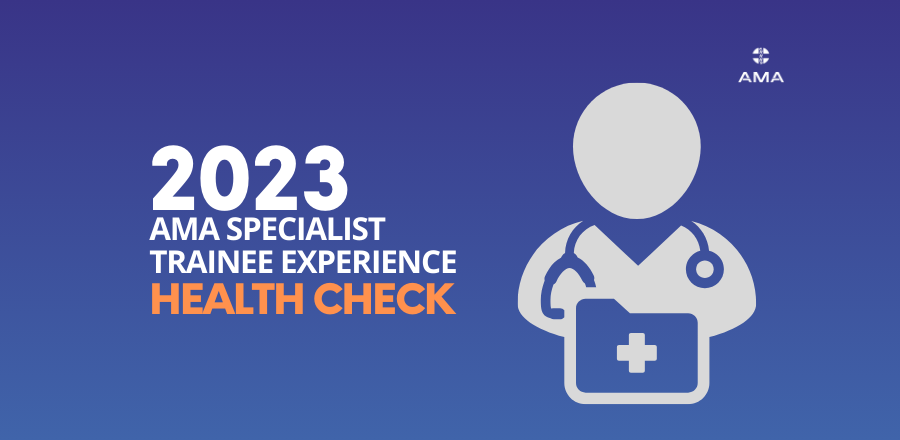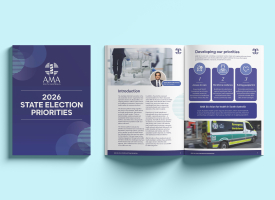Training experience must improve for Australia’s future medical specialists
The AMA’s latest Specialist Trainee Experience Health Check report has highlighted the need for improvement in the medical education experience for trainees in Australia, despite some encouraging progress.

For the first time, junior doctors can use an interactive tool to compare the performance of Australia’s major specialist colleges in a variety of key areas over a number of years, based on thousands of responses to the annual Medical Training Survey.
The AMA’s 2023 Specialist Trainee Experience Health Check report showed the highest grade trainees gave their overall training program experience was a C+ or a “pass”, while no training program received an A grade.
Council of Doctors in Training Chair Dr Sanjay Hettige said specialist medical education and training had improved slightly in some key areas, including payment for un-rostered overtime, but there was still considerable room for improvement.
“Junior doctors are the future of our health workforce, and they must be equipped with the necessary support to excel in the speciality of their choice — but at the moment there is a lot left to be desired in specialist training programs,” Dr Hettige said.
“For example, feedback about exam performance is still rated incredibly low, with just 38 per cent of trainees reporting they received useful feedback from their college. Inadequate feedback leads to confusion about why they might have failed and has a huge impact on trainee health and wellbeing, as it makes it harder for them to prepare for their next exam attempt.
“And only 77 per cent of survey respondents felt confident about raising bullying, harassment and discrimination to their college, while just 52 per cent felt safe raising training and wellbeing concerns — these numbers are far too low and warrant greater attention from medical colleges.”
The AMA’s report also shows Australia continues facing an uphill battle to address the country’s regional health workforce shortages as just 44 per cent of respondents consider a future in rural practice, and only 34 per cent of trainees working in metropolitan areas said they would consider moving to the bush. This pales in comparison with the 78 per cent of rural-based trainees who say they want to stay in rural practice.
“These results show that exposure to rural training directly influences junior doctors’ interest in working rurally in the future, but at the moment, there aren’t enough specialist training places and end-to-end training opportunities in these areas,” Dr Hettige said.
“We know rural healthcare is incredibly rewarding, but graduates seeking specialist training often have no choice but to go to the big cities. Unless greater focus is given to creating more rural training opportunities, this trend will continue at the detriment of patients in rural and regional Australia.”
Read the 2023 AMA Specialist Trainee Experience Health Check



